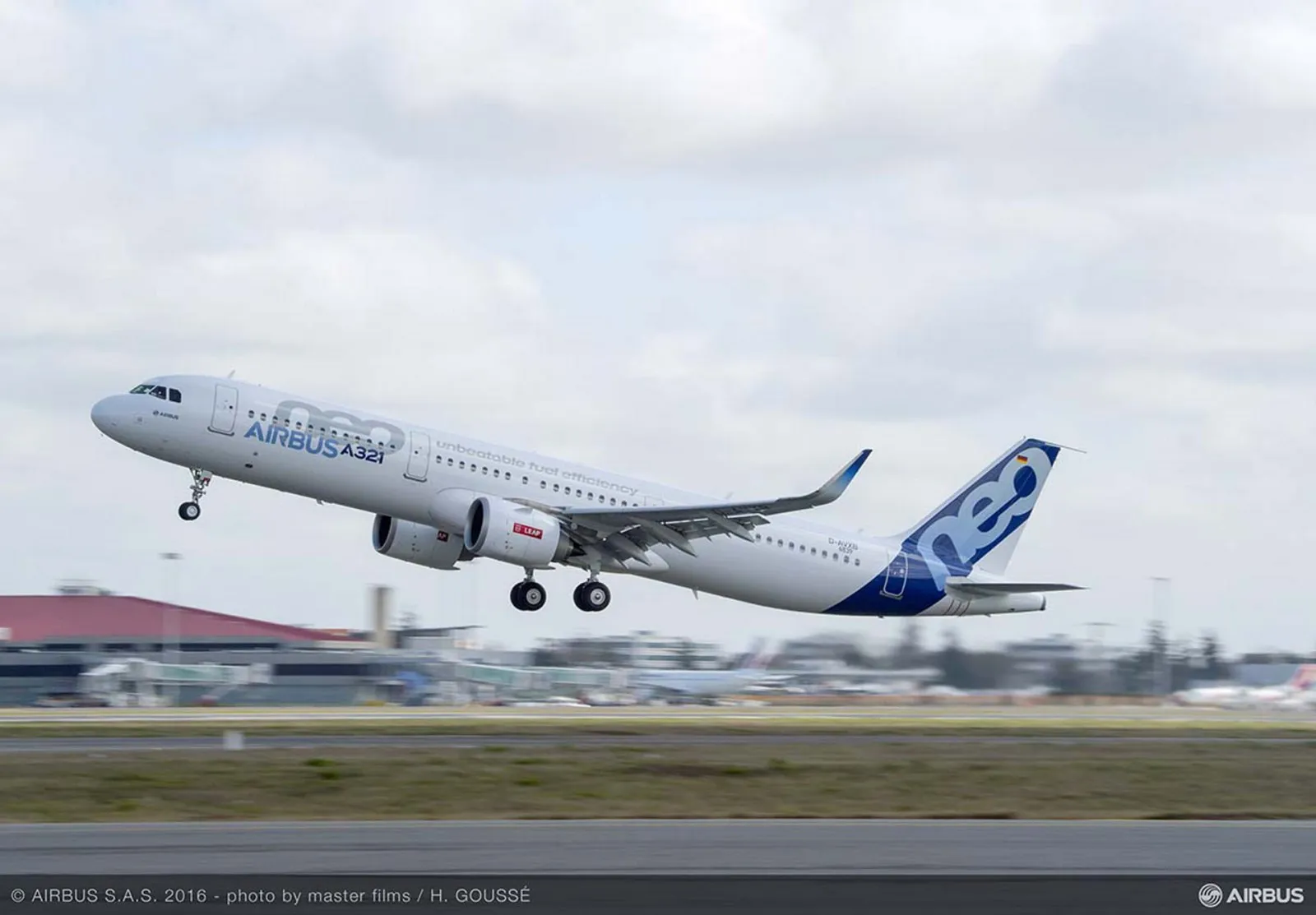
Optimistic Airbus boosts new aircraft forecast
Sep 18, 2019

Airbus has expressed confidence in the aviation market by raising its forecast for new aircraft deliveries. This optimistic outlook is fueled by a resurgence in air travel demand as economies recover and consumer confidence grows. The company anticipates a significant need for new, fuel-efficient aircraft to replace older models and meet increasing environmental regulations. Airbus's strategy includes expanding its production capabilities to accommodate this demand, reflecting a broader trend in the aviation industry towards modernization and sustainability. With a robust order book and a commitment to innovation, Airbus is well-positioned to capture market opportunities in the coming years.
Airbus recently announced an optimistic outlook regarding its new aircraft forecast, demonstrating confidence in the aviation market's recovery post-pandemic. The aerospace giant is not only maintaining its production targets but is also adapting its strategies to meet evolving market demands. This bold move underscores Airbus's commitment to innovation and customer satisfaction, reinforcing its position as a leader in the aerospace industry.
Current Market Trends
The global aviation market has shown signs of recovery as travel restrictions ease and consumer demand for air travel increases. According to industry analysts, the demand for new aircraft is set to rise significantly over the next decade. Airbus anticipates a robust increase in demand for both commercial and cargo aircraft, driven by the resurgence of international travel and e-commerce growth.
Production Plans and Targets
Airbus has set ambitious production targets for its aircraft manufacturing. The company aims to ramp up production rates for its A320 family of aircraft, which are among the most popular in the industry. By 2025, Airbus plans to increase its production to a rate of 75 aircraft per month, signaling strong confidence in the recovery of air travel.
| Aircraft Model | Current Production Rate | Projected Production Rate (2025) |
|---|---|---|
| A320 Family | 40 aircraft/month | 75 aircraft/month |
| A350 | 6 aircraft/month | 10 aircraft/month |
| A220 | 5 aircraft/month | 14 aircraft/month |
Technological Innovations
Airbus is not just focusing on quantity; it is also emphasizing quality and sustainability in its aircraft designs. The company is investing heavily in research and development to enhance fuel efficiency and reduce emissions. The introduction of the A320neo and A350 XWB models showcases Airbus's commitment to sustainable aviation, equipped with cutting-edge technology that minimizes environmental impact.
In addition, Airbus is leveraging advancements in digital technology and automation to streamline production processes. This includes the use of artificial intelligence and machine learning to optimize supply chain management and improve manufacturing efficiency.
Market Competition
While Airbus is optimistic about its forecast, it is essential to acknowledge the competitive landscape. Boeing, Airbus's primary competitor, has also made strides in enhancing its aircraft offerings and addressing past challenges. The competition between these two industry giants drives innovation and benefits consumers through improved products and services.
Airbus's strategy includes not only maintaining its market share but also expanding into emerging markets where air travel demand is surging. Regions such as Asia-Pacific and Africa are expected to see significant growth in air traffic, prompting Airbus to tailor its marketing strategies to capture these opportunities.
Customer Relationships and Future Outlook
Building strong relationships with airlines and leasing companies is pivotal for Airbus's success. The company has been proactive in engaging with its customers to understand their needs and preferences. This customer-centric approach allows Airbus to develop tailored solutions that meet the specific requirements of different markets.
Looking ahead, Airbus remains cautiously optimistic about the future of the aviation industry. The company predicts that the global fleet will need thousands of new aircraft over the next 20 years to accommodate the growing demand for air travel. This long-term vision is supported by a solid order backlog, providing Airbus with a stable foundation to navigate potential market fluctuations.
Conclusion
In conclusion, Airbus's optimistic forecast for new aircraft production reflects its confidence in the recovery of the aviation market. By focusing on innovation, sustainability, and strong customer relationships, Airbus is well-positioned to meet the challenges and opportunities that lie ahead. The company's strategic plans are not only aimed at increasing production rates but also at enhancing the overall passenger experience while minimizing environmental impact.
As the aviation industry continues to evolve, Airbus's commitment to excellence and adaptability will be key factors in its success. With a clear vision and robust strategies, Airbus is set to soar to new heights in the coming years, reinforcing its status as a trailblazer in the aerospace sector.
Related Articles

Explore Thailand: The Best Islands to Visit for Paradise, Adventure, and Relaxation

The Ultimate Guide to the Best Islands in Thailand for Your Next Getaway

Do babies need passports? How to get a passport for a newborn

How to get a U.S. passport fast: here’s how to expedite the process

What is Mobile Passport Control: 5 reasons why you should use it

SENTRI vs. Global Entry: A detailed guide

Do you need a passport to go to the Bahamas? Let’s find out

Do you need a passport to go to Mexico? A detailed guide

Do you need a passport to go to Canada? We got the answer

Do You Need a Passport for a Cruise: An Essential Travel Guide

Booster Seat Requirements: All the Rules to Follow in Your Rental Car

What Are the World’s Most Powerful Passports, and How Does Yours Rank?

How to Take a Passport Photo at Home: A Helpful Guide

You've got to have heart! Southwest's new livery

Your opinion: Should water be free on low cost carriers?

Young women bolder than guys as solo travellers
